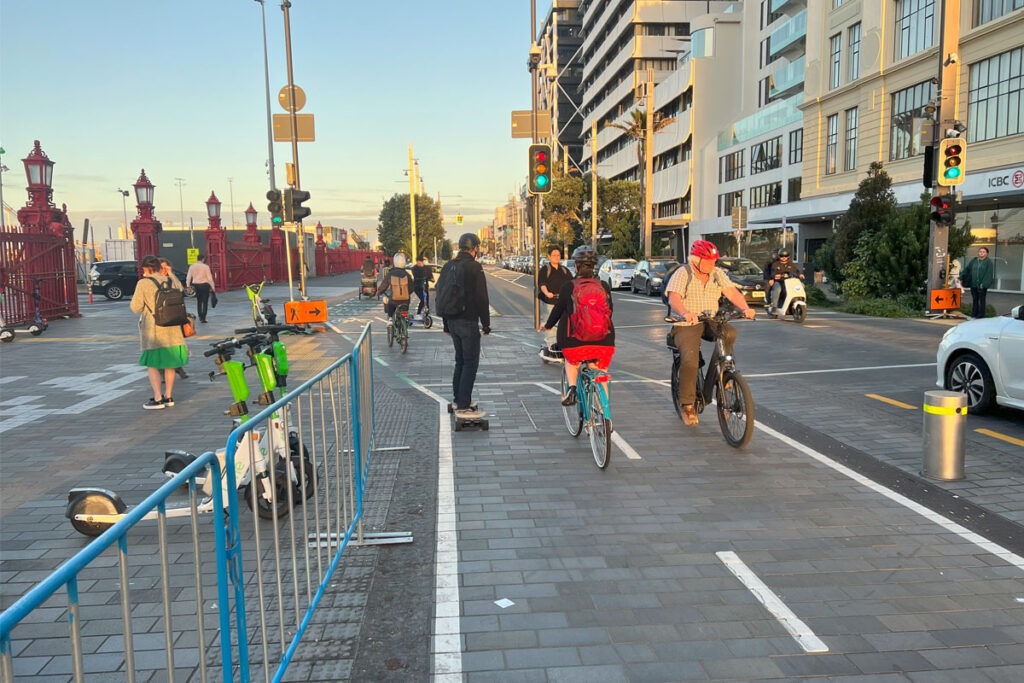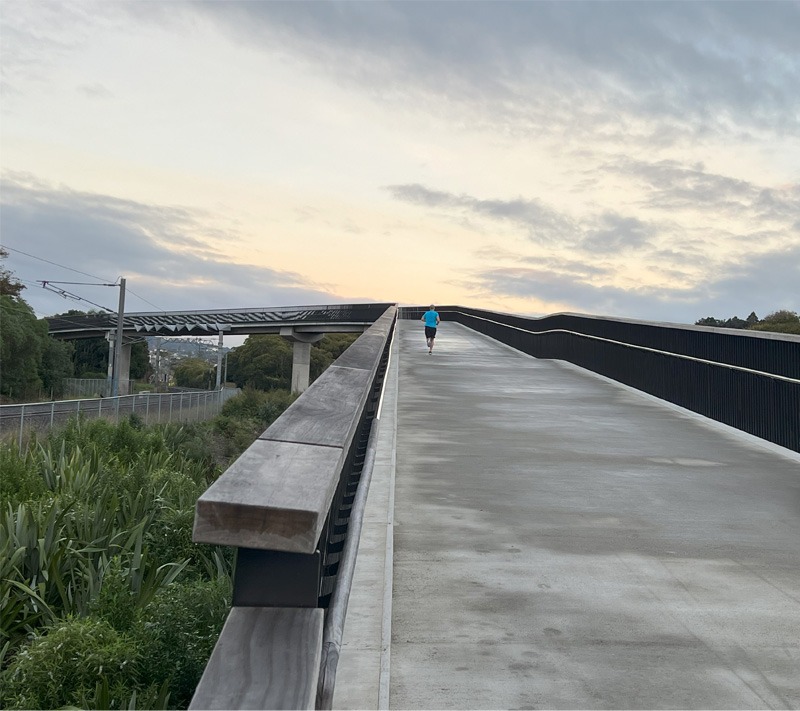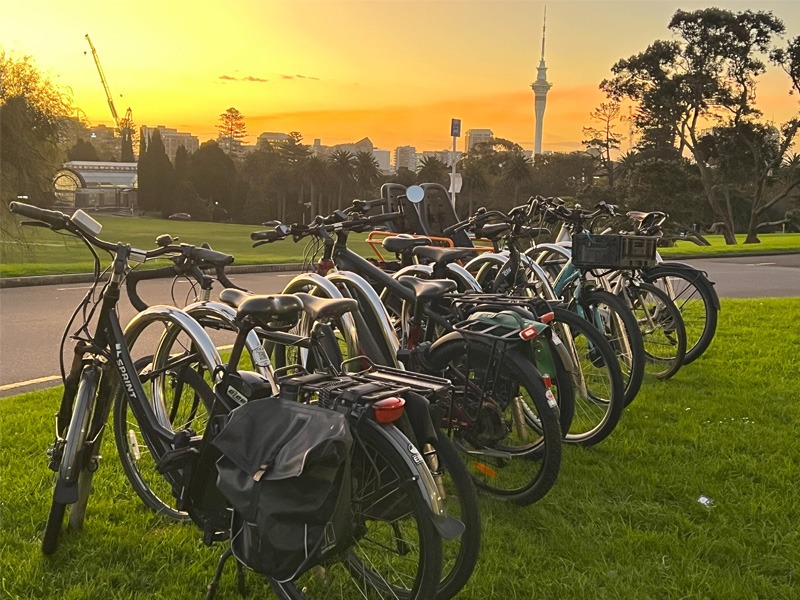Transport Minister “Sick and Tired” of Funding Cycleways

Wellington, New Zealand
New Zealand changed government in November 2023 with the right wing National Party forming a coalition with two smaller popularist parties.
In September 2024 New Zealand’s Transport Minister, Simeon Brown announced released a National Land Transport Program that included NZ$32.9 billion (A$30.1 billion) for transport over the next three years.
But the already tiny percentage allocated to existing cycleways has been halved, plus no new spending on cycleway projects.
“New Zealanders are sick and tired of the amount of money going into cycleways,” the minister said.

In dollar term that means the budget for cycling and walking has been cut from NZ$1 billion (A$917 million) to NZ$460 million (A$422 million), all of which is coming from money that was not actually spent from the 2021-2024 budget.
But it seems that not everyone is sick and tired for funding cycleways. When a sample of 2,000 eligible voters were asked their opinion in this major long-established study regarding the statement, “There should be more bicycle lanes on roads” 39% agreed, 39% disagreed and 21% were undecided.
This study showed that opinion is strongly divergent based upon political party alignment, with more voters for the current coalition government against cycle lanes than in favour and more voters for the opposition parties in favour of cycle lanes than against.
But it’s not all bad news for micromobility advocates in New Zealand. Recent figures from Auckland Transport showed a 25.6% increase in cycle movements comparing January 2024 to January 2023.
Cycling in Christchurch, the largest city in New Zealand’s South Island, is up 13% from July 2023 to July 2024 according to city-wide bike counter data. This is despite the Mayor of Christchurch, Phil Mauger also wanting to see less money spent on cycleways.

“I don’t mind cycleways but some of the ways we’re building them, the cost of what we’re doing is out of control,” he said.
Mauger said people should not be forced into particular modes of transport.
“At the moment we’ve got ‘demon car – It’s causing greenhouse gas’.
When asked if he wanted to encourage other forms of transport so as to reduce congestion, Mauger said cycleways positioned on roads sometimes “cause congestion”.
Looking to the medium term future, with newly elected cycling-hostile mayors in Auckland, Christchurch plus a negative federal government, the brightest hope lies in the nation’s capital, Wellington, where a progressive city council is pushing forward with an ambitious Master Plan. We’ve previously reported upon different aspects of this here, here, here and here.
Some information included in this article came from The Conversation, The New Zealand Election Study and Stuff NZ
